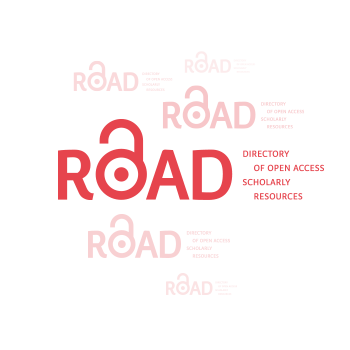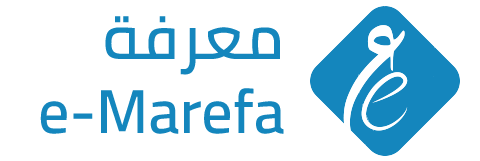Investigate Jordan Principals' Educational Leadership Practices: Empirical Study by Applying Rasch Model
DOI:
https://doi.org/10.59994/pau.2025.2.81Keywords:
Empirical Study, Rasch Model, Jordan Principals, Educational Leadership PracticesAbstract
This paper aims to explore the educational leadership practices of Jordanian principals using an empirical approach. Surveys were conducted in 250 schools selected from a larger group of 350 institutions, comprising 100 primary schools, 100 secondary schools, 25 independent schools, and 25 schools with mixed levels. The surveys were distributed to all school administrators and teaching staff in the participating schools. The study received significant participation, with 150 principals and 379 teachers providing responses. The instrument used in the study was developed based on analyses of existing literature on educational leadership models. It consists of 50 dimensions related to staff development, curriculum development, defining the school's mission, managing the instructional program, and promoting positive school learning. In Jordan, school principals are widely recognized as influential educational leaders. The findings of this study reveal that Jordanian principals received high ratings for their strengths in the investigated dimensions. This can be attributed to the fact that secondary school students often have more specialized educational needs compared to primary school students. Additionally, the data analysis indicates that Jordanian principals actively fostered a school culture that promoted teacher collaboration. This study is the first of its kind in the Jordanian context, investigating Jordanian principals' educational leadership practices as an empirical study by applying the Rasch Model.
Downloads
References
Altarawneh, A. M., & Alomoush, R. A. (2022). The reality of E-counseling services in the light of Digital learning from the point of View of Teachers in Jordan. Education and Information Technologies, 27(9), 12773-12792.
Abdiwali, S. A. (2021). Educational Leadership in Higher Education: A Scientific Literature Review. Available at SSRN: https://ssrn.com/abstract=3829556
Abdullah, M., & Osman, K. (2010). 21st century inventive thinking skills among primary students in Malaysia and Brunei. Procedia-Social and Behavioral Sciences, 9, 1646-1651.
Abu-Hamour, B., & Al-Hmouz, H. (2014). Special education in Jordan. European Journal of Special Needs Education, 29(1), 105-115.
Agi, U. K., Kalagbor, L., & Anthony, H. (2016). Politics of Educational Leadership: Its Implications for Secondary School Improvement in Rivers State. Journal of Education and Practice, 7(21), 72-79.
Ainscow, M. (2002). Understanding the development of inclusive schools: Routledge.
Al-Adwan, A., & Smedley, J. (2012). Implementing e-learning in the Jordanian Higher Education System: Factors affecting impact. International Journal of Education and Development using ICT, 8(1), 121-135.
Al-husban, N., & Akkari, A. (2021). Exploring EFL teachers’ perceptions of enacted curriculum in Jordan: towards integration curriculum development with teacher education. Curriculum and Teaching, 36(1), 71-87.
Al-Omari, A., & Sharaah, M. (2012). Leadership Readiness among Prospective School Leaders in Jordan. International Online Journal of Educational Sciences, 4(1), 50-61.
Al-Ruz, J. A., & Khasawneh, S. (2011). Jordanian pre-service teachers' and technology integration: A human resource development approach. Journal of Educational Technology & Society, 14(4), 77-87.
Al‐Omiri, M. K., Al‐Wahadni, A. M., & Saeed, K. N. (2006). Oral health attitudes, knowledge, and behavior among school children in North Jordan. Journal of dental education, 70(2), 179-187.
Amr, M. (2011). Teacher education for inclusive education in the Arab world: The case of Jordan. Prospects, 41, 399-413.
Andrews, R. L., & Soder, R. (1987). Principal leadership and student achievement. Educational Leadership, 44(6), 9-11.
Archer, M. (2013). Social origins of educational systems: Routledge.
Astin, A. W., & Astin, H. S. (2000). Leadership reconsidered: Engaging higher education in social change. W.K Kellogg Foundation.
Barber, M. (2017). How to deliver improved outcomes for school systems. London: WISE.
Bataineh, A., & Montalbano, P. (2018). The Impact of Syrian Crisis on the Quality of Education in Jordan: A Quantitative and Qualitative Assessment. Working papers seriesdipartimento discienze sociali ed economiche n. 7/2018. Sapienza University of Rome
Boone, W. J., Staver, J. R., Yale, M. S., Boone, W. J., Staver, J. R., & Yale, M. S. (2014). Fit. Rasch analysis in the human sciences, 159-189.
Briggs, D. C. (2019). Interpreting and visualizing the unit of measurement in the Rasch Model. measurement, 146, 961-971.
Briggs, K. L., & Wohlstetter, P. (2003). Key elements of a successful school-based management strategy. School effectiveness and school improvement, 14(3), 351-372.
Corcoran, T., & Silander, M. (2009). Instruction in high schools: The evidence and the challenge. The Future of Children, 19 (1), 157-183.
Darling-Hammond, L., & Friedlaender, D. (2008). Creating excellent and equitable schools. Educational Leadership, 65(8), 14-21.
Darling-Hammond, L., Wise, A. E., & Pease, S. R. (1983). Teacher evaluation in the organizational context: A review of the literature. Review of Educational Research, 53(3), 285–328. https://doi.org/10.2307/1170367
Dini, M. N. (2020). Educational leadership from a philosophical and Islamic perspective. ATTARBIYAH: Journal of Islamic Culture and Education, 5(2), 105-121.
Fatima, A., Nazir, N., & Khan, M. G. (2017). Data cleaning in data warehouse: A survey of data pre-processing techniques and tools. International Journal of Information Technology and Computer Science, 9(3), 50-61.
Flores, M. A., & Day, C. (2006). Contexts which shape and reshape new teachers’ identities: A multi-perspective study. Teaching and teacher education, 22(2), 219-232.
Fullan, M. (2002). The change. Educational Leadership, 59(8), 16-20.
Glickman, C. D., Gordon, S. P., & Ross-Gordon, J. M. (1997). Supervision of instruction: A developmental approach. Allyn & Bacon.
Goldman, R., Eguchi, A., & Sklar, E. (2004). Using Educational Robotics to Engage Inner-City Students with Technology. In Kafai, Y. B., Sandoval, W. A., Enyedy, N., Nixon, A. S., & Herrera, F. (Eds.), International Conference of the Learning Sciences: Proceedings of the Sixth International Conference of the Learning Sciences (pp. 214-221). Santa Monica, CA: Lawrence Erlbaum Associates.
Goldring, E., Cravens, X. C., Murphy, J., Porter, A. C., Elliott, S. N., & Carson, B. (2009). The evaluation of principals: What and how do states and urban districts assess leadership?. The Elementary School Journal, 110(1), 19-39.
Guzmán, V. E., Muschard, B., Gerolamo, M., Kohl, H., & Rozenfeld, H. (2020). Characteristics and Skills of Leadership in the Context of Industry 4.0. Procedia Manufacturing, 43, 543-550.
Hallinger, P. (2005). Instructional leadership and the school principal: A passing fancy that refuses to fade away. Leadership and Policy in Schools, 4(3), 221-239.
Hallinger, P. (2011). Leadership for learning: Lessons from 40 years of empirical research. Journal of Educational Administration, 49(2), 125-142.
Hallinger, P. (2013). A conceptual framework for systematic reviews of research in educational leadership and management. Journal of Educational Administration, 51(2), 126-149.
Hallinger, P., & Heck, R. H. (1996). The principal’s role in school effectiveness: An assessment of methodological progress, 1980–1995. In Leithwood, K., Chapman, J., Corson, D., Hallinger, P., & Hart, A. (Eds.), The International Handbook of Research Educational Leadership and Administration: Part1–2 (pp. 723-783): Springer.
Hallinger, P., & Leithwood, K. (2013). Unseen forces: The impact of social culture on school leadership. In Leading Schools in a Global Era (pp. 126-151): Routledge.
Hallinger, P., & Murphy, J. (1985). Assessing the instructional management behavior of principals. The Elementary School Journal, 86(2), 217-247.
Jansen, J. J., Van Den Bosch, F. A., & Volberda, H. W. (2006). Exploratory innovation, exploitative innovation, and performance: Effects of organizational antecedents and environmental moderators. Management science, 52(11), 1661-1674.
Jansen, W. (2006). Gender and the expansion of university education in Jordan. Gender and Education, 18(5), 473-490.
Jäppinen, A.-K., & Taajamo, M. (2022). Educational Leadership as a Process in Today's Changing Society. In Handbook of Research on Educational Leadership and Research Methodology (pp. 16-35): IGI Global.
Kalargyrou, V., Pescosolido, A. T., & Kalargiros, E. A. (2012). Leadership skills in management education. Academy of Educational Leadership Journal, 16(4), 39-63.
Khan Al‐Daami, K., & Wallace, G. (2007). Curriculum reform in a global context: A study of teachers in Jordan. Journal of Curriculum studies, 39(3), 339-360.
Leithwood, K., Seashore, K., Anderson, S., & Wahlstrom, K. (2004). Review of research: How leadership influences student learning. Retrieved from the University Digital Conservancy. https://hdl.handle.net/11299/2035
Linacre, J. M., & Wright, B. D. (2000). Winsteps. https://www.winsteps.com/index.htm [accessed 2025-05-27][WebCite Cache].
Looney, J. (2011). Developing High‐Quality Teachers: teacher evaluation for improvement. European Journal of Education, 46(4), 440-455.
MacBeath, J. (2005). Leadership as distributed: A matter of practice. School leadership and management, 25(4), 349-366.
Male, T., & Palaiologou, I. (2012). Learning-centred leadership or pedagogical leadership? An alternative approach to leadership in education contexts. International Journal of Leadership in Education, 15(1), 107-118.
Marzano, R. J. (2003). What works in schools: Translating research into action. ASCD.
May, H., & Supovitz, J. A. (2011). The scope of principal efforts to improve instruction. Educational administration quarterly, 47(2), 332-352.
Melhem, T. Y., & Isa, Z. M. (2013). Special education in Jordan: Reality and expectations. International Journal of Academic Research in Business and Social Sciences, 3(7), 414-422.
Mendler, A. (2009). Motivating students who don't care: Successful techniques for educators. Solution Tree Press.
Messick, S. (1989). Meaning and values in test validation: The science and ethics of assessment. Educational researcher, 18(2), 5-11.
Oplatka, I., & Arar, K. (2017). The research on educational leadership and management in the Arab world since the 1990s: A systematic review. Review of Education, 5(3), 267-307.
Penuel, W. R., Phillips, R. S., & Harris, C. J. (2014). Analysing teachers’ curriculum implementation from integrity and actor-oriented perspectives. Journal of Curriculum studies, 46(6), 751-777.
Pickstone-Taylor, S. (2015). Creating safe and supportive learning environments. Taylor & Francis.
Poekert, P. E. (2016). Teacher leadership and professional development: Examining links between two concepts central to school improvement. Teacher leadership and professional development, 38 (2), 169-188. https://doi.org/10.1080/19415257.2012.657824
Rahm, E., & Do, H. H. (2000). Data cleaning: Problems and current approaches. IEEE Data Eng. Bull., 23(4), 3-13.
Reeves, D. B. (2008). Assessing educational leaders: Evaluating performance for improved individual and organizational results. Corwin Press.
Ritter, T., & Gemünden, H. G. (2003). Network competence: Its impact on innovation success and its antecedents. Journal of business research, 56(9), 745-755.
Robinson, V. M., Lloyd, C. A., & Rowe, K. J. (2008). The impact of leadership on student outcomes: An analysis of the differential effects of leadership types. Educational administration quarterly, 44(5), 635-674.
Rodriguez, J., & Walters, K. (2017). The importance of training and development in employee performance and evaluation. World Wide Journal of Multidisciplinary Research and Development, 3(10), 206-212.
Saleh, M. M. A., Jawabreh, O. A., al-Amro, S. a. h., & Saleh, H. M. I. (2023). RETRACTED ARTICLE: Requirements for enhancing the standard of accounting education and its alignment with labor market requirements a case study hospitality and industrial sector in Jordan. Journal of Sustainable Finance & Investment, 13(1), 176-193.
Seashore Louis, K., Dretzke, B., & Wahlstrom, K. (2010). How does leadership affect student achievement? Results from a national US survey. School effectiveness and school improvement, 21(3), 315-336.
Seashore Louis, K., & Lee, M. (2016). Teachers’ capacity for organizational learning: The effects of school culture and context. School effectiveness and school improvement, 27(4), 534-556.
Sebastian, J., & Allensworth, E. (2012). The influence of principal leadership on classroom instruction and student learning: A study of mediated pathways to learning. Educational administration quarterly, 48(4), 626-663.
Sergiovanni, T. J. (1996). Leadership for the schoolhouse: How is it different? Why is it important?. Jossey-Bass.
Shboul, M. Q. (2022). Degree of the Practice of Educational Governance Principles from the Point of View of School Principals in the Directorate of Education for Ramtha district in Jordan. Journal of Positive School Psychology, 6 (4), 7815-7832.
Smith, A. B., Rush, R., Fallowfield, L. J., Velikova, G., & Sharpe, M. (2008). Rasch fit statistics and sample size considerations for polytomous data. BMC medical research methodology, 8, 1-11.
Southworth, G. (2002). Instructional leadership in schools: Reflections and empirical evidence. School Leadership & Management, 22(1), 73-91.
Spillane, J. P., & Sherer, J. Z. (2004). A distributed perspective on school leadership: Leadership practice as stretched over people and place. Paper presented at the Annual meeting of the American education association, San Diego, CA.
Tutunji, T. A., Jumah, M., Hosamel-deen, Y., & Abd Rabbo, S. (2007). Mechatronics curriculum development at Philadelphia University in Jordan. Mechatronics, 17(1), 65-71.
Van Driel, J. H., Beijaard, D., & Verloop, N. (2001). Professional development and reform in science education: The role of teachers' practical knowledge. Journal of Research in Science Teaching: The Official Journal of the National Association for Research in Science Teaching, 38(2), 137-158.
Downloads
Published
How to Cite
Issue
Section
License
Copyright (c) 2023 Journal of Palestine Ahliya University for Research and Studies

This work is licensed under a Creative Commons Attribution 4.0 International License.
مجلة جامعة فلسطين الاهلية للبحوث والدراسات تعتمد رخصة نَسب المُصنَّف 4.0 دولي (CC BY 4.0)











